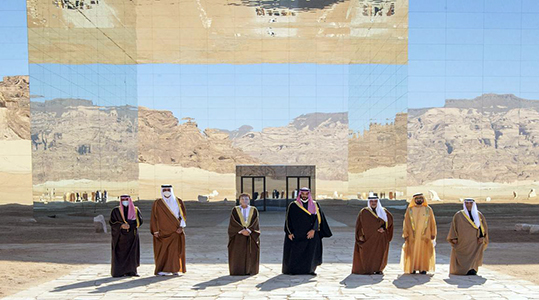Standard & Poor's credit rating agency expected that the Gulf reconciliation would lead to an improvement in the business and investment environment in the region. Revealing that the travel, tourism and real estate sectors within the region will benefit the most, although the impact on bilateral trade may be marginal.
According to the report, trade between member states is relatively limited, due to the almost uniform concentration of oil exports, in addition to the lack of agriculture or strong manufacturing sectors in the region.
Despite the reconciliation, the agency believes that the damage caused by the three-year boycott of Qatar to the political cohesion of the Gulf states will continue. Indicating that at this stage, we do not expect any impact on the classification of the State of Qatar or those countries that remove the boycott. According to the agency, the imposition of the boycott undermined the concept of unity proposed by the leaders of the Gulf Cooperation Council countries before the diplomatic division, expecting that the fundamental differences in foreign policies will continue to affect relations between countries despite the official reconciliation.
The report showed that the outlook for Qatar is stable, despite the low expectations for economic growth, indicating that Qatar's credit position will remain strong, supported by its rich economy and huge foreign assets.
On January 5, the 41st Gulf Summit was held in Al-Ula, northwest of Saudi Arabia, with the participation of the Emir of Qatar, for the first time in more than 3 years. The closing statement of the summit included many items that encourage economic integration, among them the focus on projects with a strategic dimension, most notably the completion of the requirements of the customs union, and the taking of practical measures towards achieving the Common Gulf Market and the Railway Project.
Source (Al-Araby Al-Jadeed Newspaper, Edited)

